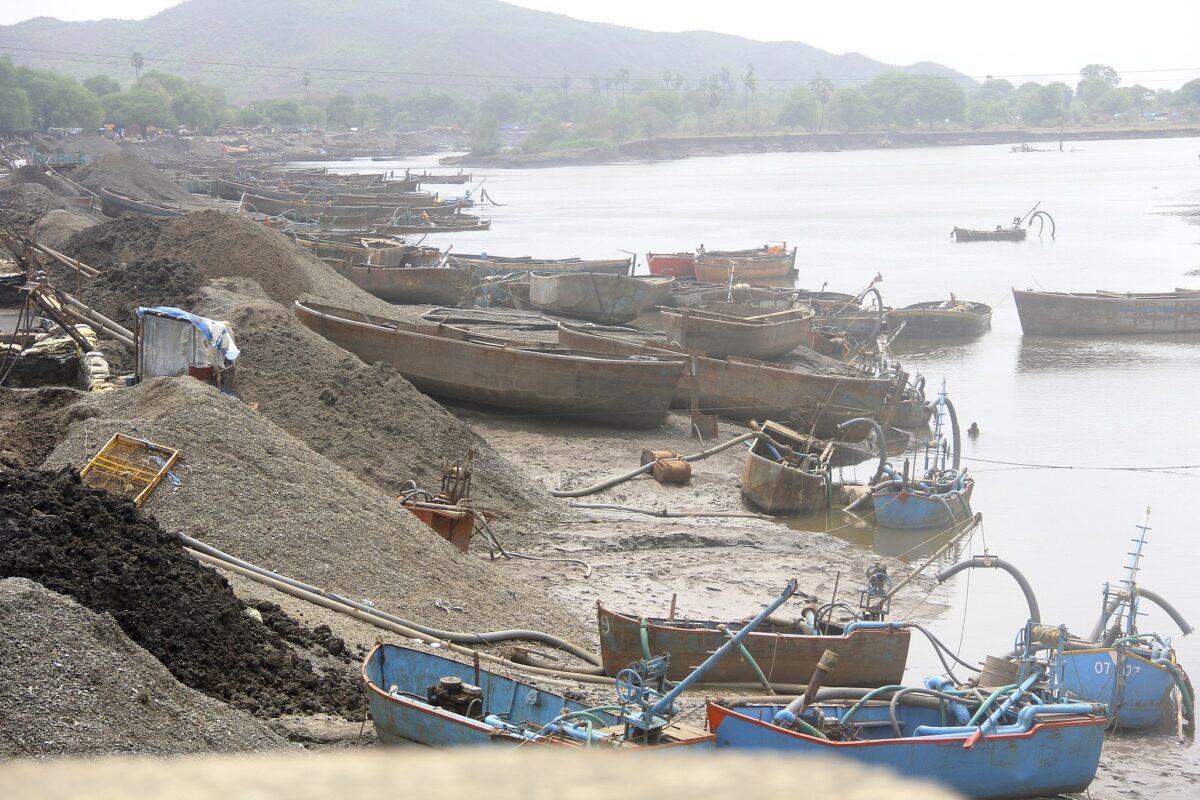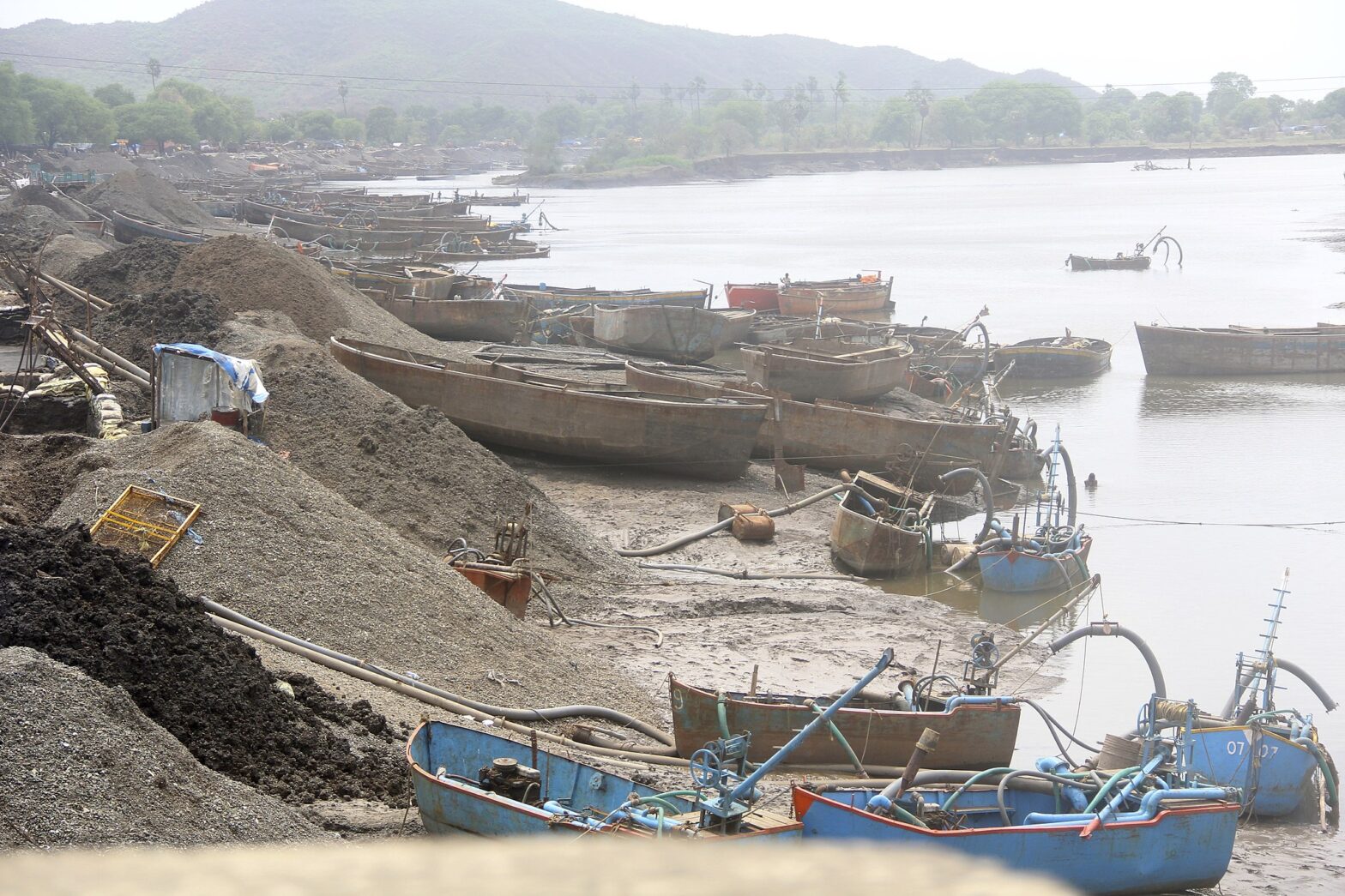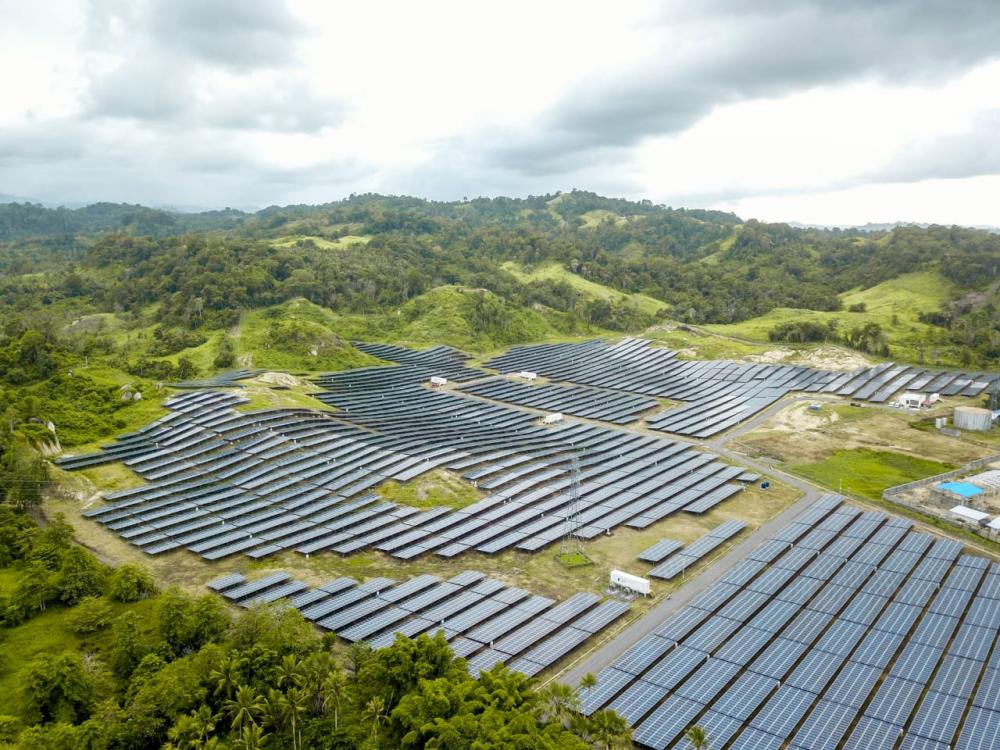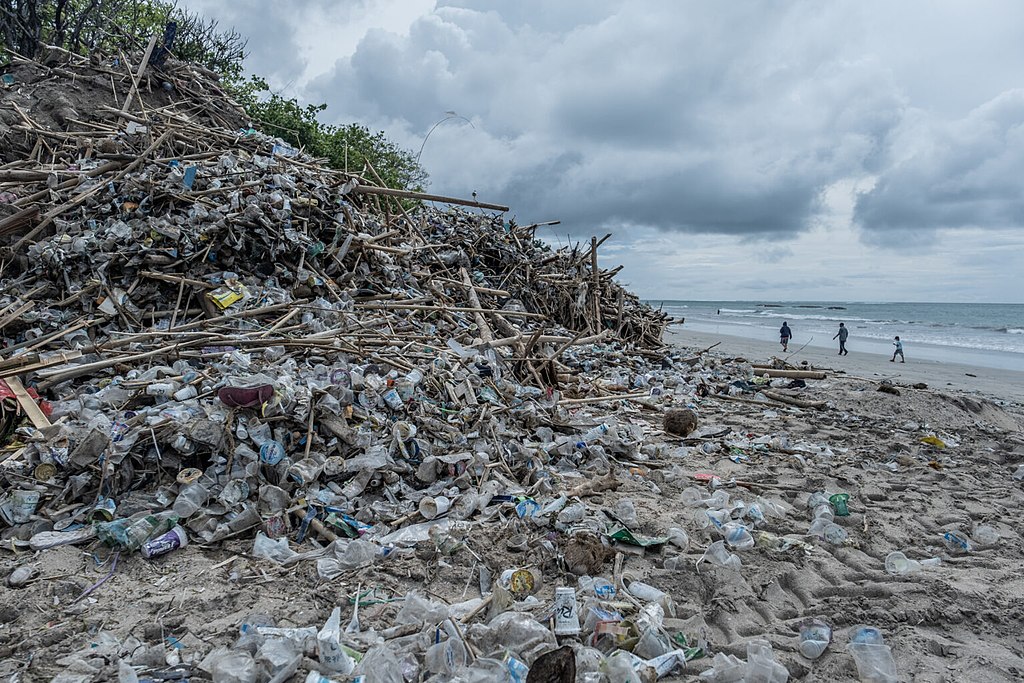Indonesia ends a 20-year ban on sea sand export. Despite arguments, communities say the new law will only hurt their livelihood and further destroy the environment.
Representatives of coastal communities from Indonesian regions are urging President Joko Widodo to revoke a government regulation on the management of Marine sediment arguing it may threaten fishing activities and coastal environments sustainability.
The call against Government Regulation (PP) Number 26 of 2023 issued on May 15, 2023, was made during a discussion held by the People’s Coalition of Justice in Fishery (Kiara) on May 31, 2023.
The discussion titled “The Call of Coastal Communities Urging President of the Republic of Indonesia Joko Widodo to Revoke PP 26 of 2023” was attended by representatives of traditional fishermen and coastal communities from 16 Indonesian regions.
They aired their concerns over the environmental impact of marine sediment mining as allowed by the regulation. They said that the regulation undermines the efforts of fishermen and coastal communities in protecting the health of the sea.
This regulation actually hides the main objective: the commercialization of the sea, behind the mask of maritime and coastal environment conservation through the management of sediments.
Dani Setiawan, Chairman, the Association of Indonesian Traditional Fishermen (KNTI)
Dafiq, from Balong village in Jepara, Central Java said that for the past two years he had protested sea sand mining. This was causing erosion, pushing the coastline up to five meters inland in a number of locations. This resulted in increased tidal waves, inundating rice fields in the area.
“Law No. 26 of 2023 represents a new problem and whether we want it or not, we have to be ready. We cannot stay silent,” said Dafiq.
Naen Noan who’s part of a coastal community in Natuna Islands, said that sand mining in the Riau islands, such as in Karimun and Bintan, turned the sea murky. In addition, the activities of trucks transporting the sand caused pollution. Sand was mined to fill the sea in Singapore’s reclamation project.
“Only Natunas is left and has a lot of access and is not far from Singapore. If this regulation is passed by the President, what can we say?” he asked.
The same concerns were expressed by women in fishing communities. The climate crisis resulted from environmental neglect, such as reclamation and mining. This made fish scarce, extreme weather events, and sea erosion. When their husband cannot work, women have to work to feed their families.
For Masnuah, the Indonesian Fisherwomen Sisterhood (PPNI) secretary general said, the situation will get complicated when they are pregnant, or when their children are sick. “We demand that President Joko Widodo revoke PP 26 of 2023 because fisherwomen are closely tied to the coast,” she said.
A step backwards?
The Sedimentation Law is viewed by many — environmental activists, experts, and communities – as a step backward. This is because in 2003, then President Megawati temporarily halted sea sand exports. A similar ban through Regulation of the Trade Minister on The Prohibition to Export Sand, Soil and Top Soill under President Susilo Bambang Yudhoyono was issued in 2007.
Kiara secretary general Susan Herawati underlined that the law only modified the terminology, to make it more acceptable to exploit marine resources.
Herawati said that after 16 years of protecting the sea, efforts now are met with the legal sea sand exports for economic interests. “The fact is that pockets of poverty in the coastal areas continue to increase, even though the state gets fantastic non-tax revenues,” she said.
Herawati said that legitimizing sea sand mining is ironic because in his first term, President Joko Widodo announced Indonesia would become the world maritime axis. In addition, the law contradicts an intensified Indonesian marine conservation program.
Dani Setiawan, chairman of the Association of Indonesian Traditional Fishermen (KNTI) said that in the past sea sand export represented a really profitable business but caused the state to lose millions of dollars.
Sand mining, which has also become uncontrollable, destroys marine and coastal environments, threatening fishermen’s livelihood while only benefiting other countries.
“This regulation actually hides the main objective: the commercialization of the sea, behind the mask of maritime and coastal environment conservation through the management of sediments,” Setiawan said.
KNTI also regrets that PP 26 of 2023 did not mention fishermen and cultivators potentially affected by sea sand utilization activities, completely alienating them.
Parid Ridwanudin, campaign manager for coastal areas and the sea for the Indonesia Forum for Environment (WALHI) also said that the regulation represented a step back in the protection and management of coastal and marine resources, including the protection of fish catch areas for fishermen, who are the country’s main seafood producers.
Parid said for WALHI, the law, packed with scientific language, is only meant to support business interests. He added that, instead of strengthening climate crisis adaptation and mitigation, the is focused on annulling its statements in international forums.
Based on WALHI’s studies on 28 documents concerning regional regulation on the Zoning Plan for Coastal Areas and Small Islands (RZWP3K), almost four million hectares of coastal areas would be reclaimed until 2040.
“There are a number of provinces yet to complete their RZWP3K but if all provinces with coasts are included in the calculation, there will be around four million hectares (that would be reclaimed). There is a need for a lot of material,” he told Ekuatorial.
A total of 28 Walhi regional executives from across Indonesia stated that sea sand mining threatened small islands and coastal areas in many locations. In addition, it threatened almost 13,000 coastal villages in Indonesia. Therefore they urged President Joko Widodo to revoke PP 26 of 2023 and issue a permanent moratorium on all land reclamation projects and sea sand mining.
Controlling marine sedimentation
Under the Sedimentation Law, products of marine sedimentation are defined as natural materials formed by a decomposition process and erosion. These materials are distributed by oceanography dynamics and settled on the bottom of the sea, and which can be mined to prevent disturbances to the ecosystem or to shipping.
Based on that the government says the law is aimed at controlling sediment products in Indonesian seas and protecting coastal areas from sea sand mining.
Law No. 26 of 2023 represents a new problem and whether we want it or not, we have to be ready. We cannot stay silent.
Dafiq, Balong Village
Luhut Binsar Pandjaitan, Coordinating Minister for Maritime Affairs and Investment said that mining sea sediments would not harm the environment because it would only be carried out in shallow seas filled with sedimentation and was to deepen shipping lanes.
“Likewise, the lanes would become shallower. It is also for the health of the sea,” Pandjaitan stated as reported by detik.com.
Meanwhile, Sakti Wahyu Trenggono, Minister of Maritime Affairs and Fisheries, explained that the law is an effort to prevent sea sand mining, amid the high demand for reclamation. If there is no regulation on it, he believes sand suction will target islands and impact the environment.
“This regime is different from the previous regime. Twenty years ago it was banned because there was still no regulation on sedimentation. The sand is taken from islands and it is still happening today,” he told a press conference on sea sedimentation management on May 31, 2023.
Details on the use of marine sediments would only be defined through a ministerial regulation. This would involve studies from three concerned ministries – marine and fishery affairs, energy and mineral resources, and environment and forestry. Academics, experts, and non-governmental organizations would also be involved.
The ministerial regulation will also stipulate export provisions for marine sedimentation products. However, according to the marine and fisheries affairs minister, export activities can only be carried out after domestic material needs are met. They must not damage the environment, and get approval from experts.



